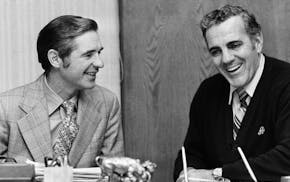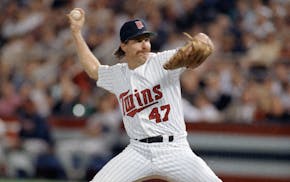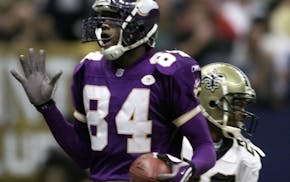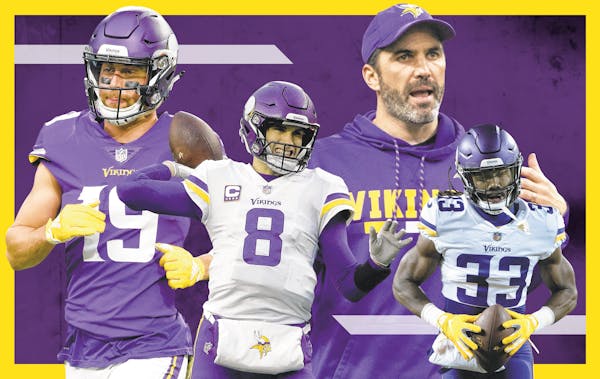For decades, stadium naysayers in the Twin Cities didn't believe there was a way to build new homes for the Twins and Vikings without some major taxes that would hurt people living in Minneapolis or around the state.
But with the report this past week about the success of electronic pulltabs on the funding for U.S. Bank Stadium and the continued success of the .15 percent sales tax in Hennepin County for Target Field, there is no doubt that the city of Minneapolis and state of Minnesota can continue to show other states what a truly successful partnership looks like when it comes to stadium financing for professional sports.
Regarding U.S. Bank Stadium, charitable gambling revenue has been so robust in filling out its reserve account that the state projected it no longer needs to issue a $20 million corporate tax to fill that reserve.
The belief is that by 2023, the reserve could hold $193 million.
A report in the Star Tribune on Wednesday said that U.S. Bank Stadium could follow the same path as Target Field and pay off its loan debt nearly a decade early.
The Twins' Target Field could be completely paid for by 2027, 10 years earlier than expected, at a savings of $150 million. If U.S. Bank Stadium were to do the same, the savings would be closer to $300 million.
On top of that, another recent Star Tribune report showed that the state will be working with a budget surplus of some $1.5 billion for Gov.-elect Tim Walz over the next two years, meaning there's no reason the state should need to funnel the U.S. Bank Stadium money toward another project.
Bagley battled for deal
If there is one person who can claim to have seen the battle through at the Legislature for U.S. Bank Stadium, it is Lester Bagley, Vikings executive vice president for public affairs.
Bagley said the success of the stadium's funding is both a cause for great celebration and a reminder that many people put their reputations on the line in saying this would work for the state of Minnesota, and it has.
"U.S. Bank Stadium is, in Year 3, proving to be a great result," Bagley said. "First of all, it's an incredible fan experience and a great stadium and a great home-field advantage for the Vikings. But it has been a great success for the public and for the state of Minnesota. It's a great asset.
"A lot of people worked really hard on this thing, [outgoing] Gov. Mark Dayton, Sen. [Julie] Rosen, Rep. [Morrie] Lanning, Mayor [R.T.] Rybak, a lot of this team worked really hard to put this great deal together. Now that the originally funding source, the electronic pulltabs, are coming in a lot faster than they originally were, the account is growing, the stadium reserve is growing up over $200 million over the next five years.
"We think you should take that money and refinance the stadium deal. Cut a number of years off the term of the debt and save the taxpayers hundreds of millions of dollars in finance cost. That's where the situation is."
Pay off debt early
There's no doubt in Bagley's mind that turning the surplus money into debt consolidation would be the right move for the state.
He said the original stadium deal — which had the Vikings contributing $477 million while the state contributed $348 million and the city of Minneapolis raised $150 million through a hospitality tax — was the right kind of agreement.
"It was a very fair deal. It's turning into being a model of a very successful, public-private partnership and a great asset," Bagley said. "It not only delivered economic impact — the whole Downtown East area is growing gangbusters, more than $2 billion in investment, we got the Super Bowl, Final Four — but it's we also now have the opportunity to pay it off in a little more than 20 years and have it owned completely by the state and no more debt on it. It has been a tremendous success. To complete the story, let's pay it off early and make it a great success, a model for other states and communities that are going through these same issues.
"Twelve years it took to pass this deal, and everything we said and argued and advocated for with the benefits of this stadium have come true."
Bagley said when he considers the success of Target Field and U.S. Bank Stadium, he doesn't see it as a win for stadium advocates but as a win-win for the teams in Minnesota and the people of Minnesota.
And if they can pay the debt of the stadium off early, that makes the deal even better.
"Take a page out of Hennepin County's book," Bagley said. "They have already done it. They've already shown the way by cutting six years off of the term of the Target Field debt and they have saved the taxpayers more than $100 million. Target Field is a great success. U.S. Bank Stadium is a great success.
"We should do the same thing, not spend the money — there was a big discussion last legislative session about the stadium reserve, about spending it on something else. It needs to be spent on the purpose it was designated for, which was to pay for U.S. Bank Stadium."
JOTTINGS
• Before being named Vikings interim offensive coordinator, Kevin Stefanski talked about what he sees in quarterback Kirk Cousins: "He is a very conscientious person, very serious about his job, takes his craft as serious as any guy I have ever been around. Which is fun to work with a guy like that because he keeps you on your toes as a coach. He wants answers and he wants to be as prepared as possible."
• Former Vikings coach Leslie Frazier, who took over as Bills defensive coordinator last year, has completely changed that team. After being No. 26 in total defense last season the Bills are No. 1 this season, giving up 290.6 yards per game.
• The Vikings offense will look to make big strides vs. Miami under Stefanski. Monday night, the offense didn't run a single snap in Seattle territory in the first half, so it should be clear early if the team responds to the move. After two quarters vs. the Seahawks, they had only 61 yards. Adam Thielen went without a catch in the first half, the only half in which that has happened this season.
• The Kentucky men's basketball team is 7-2 and ranked 19th, and former DeLaSalle standout Reid Travis, the 6-8 senior graduate transfer from Stanford, is the Wildcats' second-leading scorer (14.4 points per game) and rebounder (6.8 per game).
• The Gophers should easily be 11-2 going into the main part of Big Ten play, as their next two opponents, Mount St. Mary's and North Carolina AT&T, are a combined 4-15.
• Five wrestlers from Minnesota are ranked in the top five in their weight class, according to InterMat: South Dakota State's Seth Gross (Apple Valley, No. 1 at 133 pounds), the Gophers' Mitch McKee (St. Michael-Albertville, No. 5 at 141), Penn State's Mark Hall (Apple Valley, No. 2 at 174), Nebraska's Taylor Venz (Farmington, No. 3 at 184) and the Gophers' Gable Steveson (Apple Valley, No. 2 at heavyweight).
Sid Hartman can be heard on WCCO AM-830 at 8:40 a.m. Monday and Friday, 2 p.m. Friday and 10:30 a.m. Sunday. • shartman@startribune.com

Sid Instant Replay from 1977: Vikings' Super Bowl loss to Raiders hurt the most

Read Sid's column from 1974, when Ara Parseghian left Notre Dame

Sid instant replay: No greater hero than Twins' Morris in World Series


